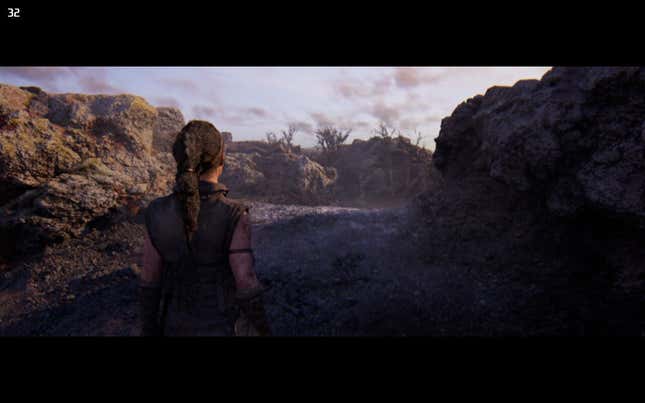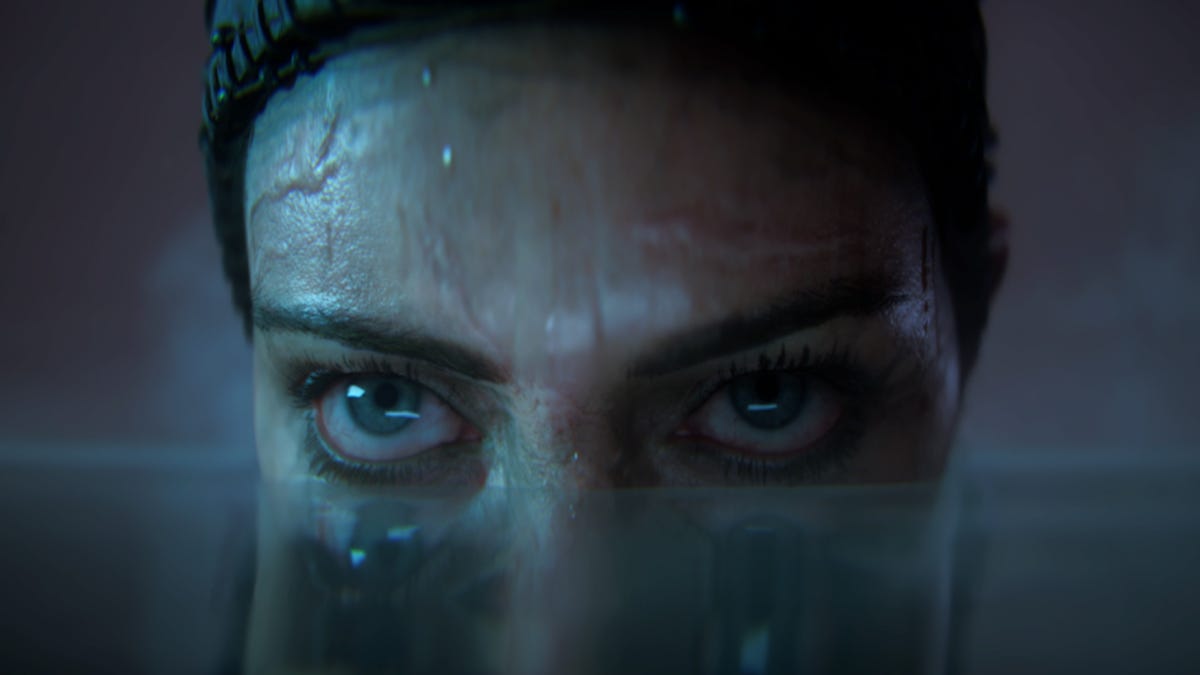Senua’s Saga: Hellblade II, Ninja Theory’s latest narrative action-adventure game, arrived on May 21, 2024 for Xbox and PC. While many may be divided over its simple combat and lengthy puzzles, there’s no denying that Hellblade 2 is a visually stunning game, especially on a PC with the horsepower to push the game to near-photorealistic levels of detail.
Read More: Senua’s Saga: Hellblade 2: The Kotaku Review
Buy Senua’s Saga: Hellblade II: Amazon | Best Buy | GameStop
If you are looking to tweak the graphics a bit further, or are struggling with framerate issues or a strange visual artifact that draws black dots on people’s faces, read on for how to change these, as well as how to troubleshoot and tweak the game to your liking.
Make sure your graphics card drivers are up to date
Just in time for Hellblade 2’s release, Nvidia has pushed out a new driver that specifically addresses performance in Senua’s Saga. Even if you don’t have an Nvidia card, however, you should make sure your drivers are up to date.
Using Hellblade 2’s graphics settings and performance meter
It’s well worth your time to dive into Hellblade’s graphics settings before you start up the game as you want to mitigate how much time you spend dealing with menus during Senua’s journey. In Settings > Graphics you’ll find a number of settings to start with, as well as a performance meter in the upper-right corner of the screen that’s more or less self-explanatory.
Read More: Hellblade 2 Studio Reportedly Already Working On Its Next Game
If you’re not used to reading meters like this, you’ll want to pay attention to the “Frame” section and the Video Memory bar. The former indicates how many frames you’re getting per second (FPS). Hellblade is a very narrative game, so 30-FPS makes for a decent experience. I found, though, that the game feels great at 60 and above, so definitely aim for that if you can.
The next thing you’ll want to mess with is your choice of upscaler, which will vary depending on your graphics card. AMD folks should go with FSR3 while those of us on team green with Nvidia cards should use DLSS. The alternatives should not be used unless absolutely necessary.
Variable rate shading will reduce how much effort your GPU spends rendering non-obvious portions of the screen. It typically results in an improvement in performance at a less-than-noticeable decrease in visual fidelity.
Clicking on “Advanced Settings” in the graphics settings will open a drop-down menu where you can tailor the experience to your preferences and the performance power of your machine.
While I do wish Hellblade 2 had a dedicated benchmark tool, the closest is the “Preview,” activated by pressing the spacebar or the menu button on a controller. This will pull the menu back to show a scene with Senua, some foliage, a building behind her, and a puddle for reflections when you’re not in a game. You can then toggle between different levels of quality for specific settings to see the effect in real time.
If you navigate to the graphics settings while playing the game and select the “Preview” option, it will show the active scene instead. This is a good way to troubleshoot specific issues you may be having during select moments of Hellblade 2. My preference is to tweak these settings before you load into a game for less distractions, but also because the preview option in the main menu shows more motion than it does while in-game.
In my experience, I found post-processing, effects, reflection, texture, view distance, and foliage to be worth bumping up to the High settings. Reflections in particular I found to be very much worth bringing up to High. Everything else I kept down to medium, but your results and preferences may differ.
You may still have to dive into the graphics settings during gameplay to tweak things if you’re not happy with the settings. I suggest not fiddling with things too much once you’ve found a nice sweet spot.
Hellblade 2 has an in-game FPS-meter, too
Unless you use another program (like TK) to show your framerate, you can monitor it in real-time while playing Saga by going to Settings > Advanced Settings > Show FPS. This will pin a frame-rate counter in one of the corners of the screen and you can adjust its opacity and text color. Since Hellblade 2 has permanent letterbox bars at all times, the FPS counter isn’t terribly distracting. And it can help you get a sense of how well your framerate is performing if you’re not used to spotting framerate dips by eye.
How to deal with black dots on character faces
There’s a chance you might be struggling with a little visual quirk in Hellblade 2 that dramatically sours the experience: Dancing black dots on character faces. These will pop up during gameplay and through cutscenes.
In my experience, after updating my Nvidia card to the latest driver, I haven’t seen this. But if you’re still struggling with it, I found that bumping up the “Effects” setting to “High” made these go away.
What about the Steam Deck?

From a qualitative standpoint, Hellblade 2 is best played on a big screen, powered by something that can reliably deliver at least a solid 30-frames per second. The Steam Deck is not the machine for that. It will, however, run Hellblade 2 with mixed results.
The majority of my time with Hellblade 2 has been on PC, but I have spent a few hours in transit playing the game on Steam Deck. Headphones, of course, are necessary here and given how much of the experience of Hellblade is an aural one, the game is still entertaining in portable format. That said, you will need to bring the graphics to Low settings across the board, with FSR3 turned on. Even then, the game will dip below 30-frames per second and about 1-2 hours of battery life depending on the age of your battery. 19 FPS was the lowest dip I saw thus far.
It’s certainly “Playable,” but I would advise relying on a more powerful machine to crunch Hellblade 2’s pixels for you. Even relying on Steam’s Remote Play via Steam Deck is a better option than letting the Deck itself run the game on its GPU.
No, there’s no way to remove the black bars without mods
Hellblade 2 only just launched on PC and Xbox and already there are a few mods for tweaking the visual settings, including a mod that removes letterboxing. Saga uses a wide variety of post-processing techniques to create a lush, film-like, surreal experience. That, combined with letterboxing, to me is a pretty essential part of the visual look and artistic intent in Hellblade that I’d prefer to keep it as is.
Note that mods may or may not interfere with the stability of the game, so mod away at your own risk.
.

